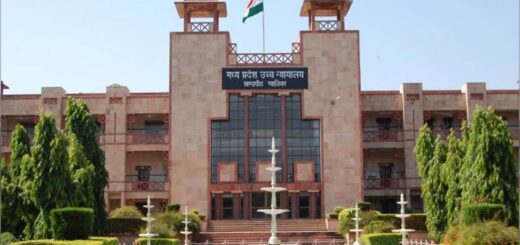The Employee’s Compensation Act states that if an employer defaults, they must pay 12% simple interest per year, according to the Supreme Court.

The Supreme Court noted that according to Section 4A(3) of the Employee’s Compensation Act, 1923, if an employer fails to pay the agreed compensation within one month of it being due, interest will start accruing at a rate of 12%. The appellants brought their case to the Supreme Court to contest the interest awarded under this Act. Justices Sudhanshu Dhulia and K. Vinod Chandran stated that the law clearly sets the interest rate at 12%.
The appellants argued that there is a legal requirement to award interest at 12% per year under Subsection 3(a), and the Commissioner only has the discretion to grant a higher rate, which cannot exceed the rate set for scheduled banks. The Insurance Company contended that if the employer fails to comply with Section 4A(2), which requires provisional payments when disputing liability, the extra costs from this failure should not fall on the insurer. The Respondent also mentioned that the vehicle owner was the deceased’s father, and the deceased worked as a cleaner for his father’s truck. The claimants included the mother and other siblings.
The Bench emphasized that under Section 4A(3), interest liability arises if the employer does not pay the admitted compensation within one month, and in such cases, interest will accrue as specified. They also confirmed that interest begins from the date of the accident. Discretion is limited to setting a higher interest rate, as long as it does not go beyond the lending rates set for scheduled banks. Therefore, a simple interest rate of 12% per year must be applied. The legislative intent is clear regarding Sub-clause (b) of Section 4A(3), which gives the Commissioner or Authority the power to impose a penalty of up to 50% of the awarded amounts, while no such power exists under clause (a). The Apex Court observed that the issue of whether the son’s work in the father’s vehicle benefits the legal representatives for a compensation claim under the Act could not be raised. The claim was previously dismissed on this basis, prompting the claimants to go to the High Court, which ordered a fresh review based on the evidence regarding the employer-employee relationship. The Commissioner reviewed the evidence and confirmed the existence of this relationship, resulting in an award of compensation with 6% interest per year and an additional 40% penalty for the default.
The Bench stated that the High Court confirmed the 6% interest award in an appeal by the claimants. This appeal aimed to get interest from the accident date and to increase the rate, but the increase was denied. The Bench noted that the Insurance Company did not file an appeal or cross-appeal against the 6% interest. Therefore, in a new appeal by the claimants to this Court, the Insurance Company cannot avoid its responsibility to pay the interest or seek recovery from the insured. The Bench found the claim of the appellants valid under the law, allowing the appeal and changing the interest rate to 12% per annum from the date of the accident.
Cause Title: Shanti & Ors. v. National Insurance Company (Neutral Citation: 2025 INSC 234)









